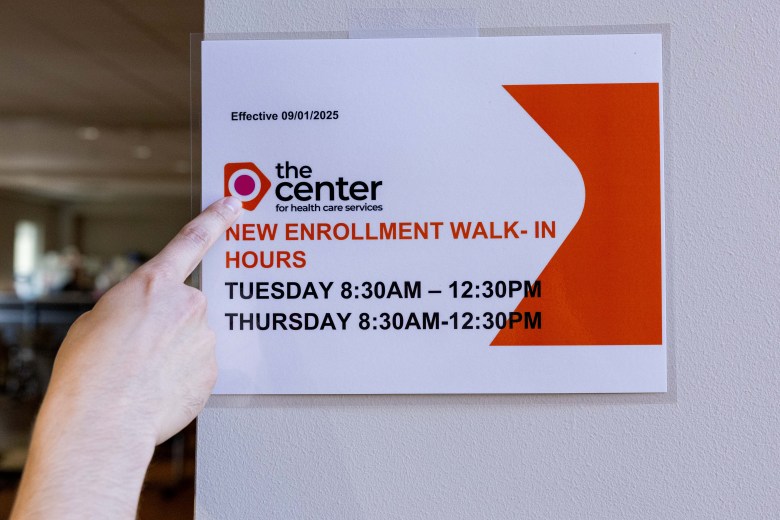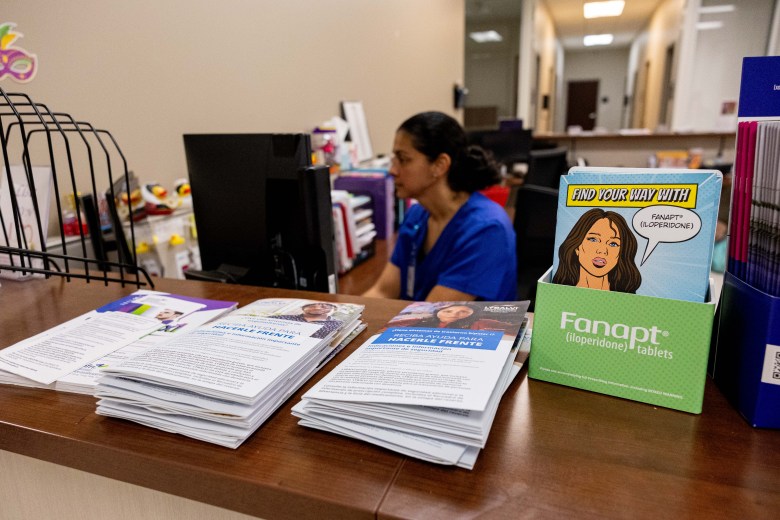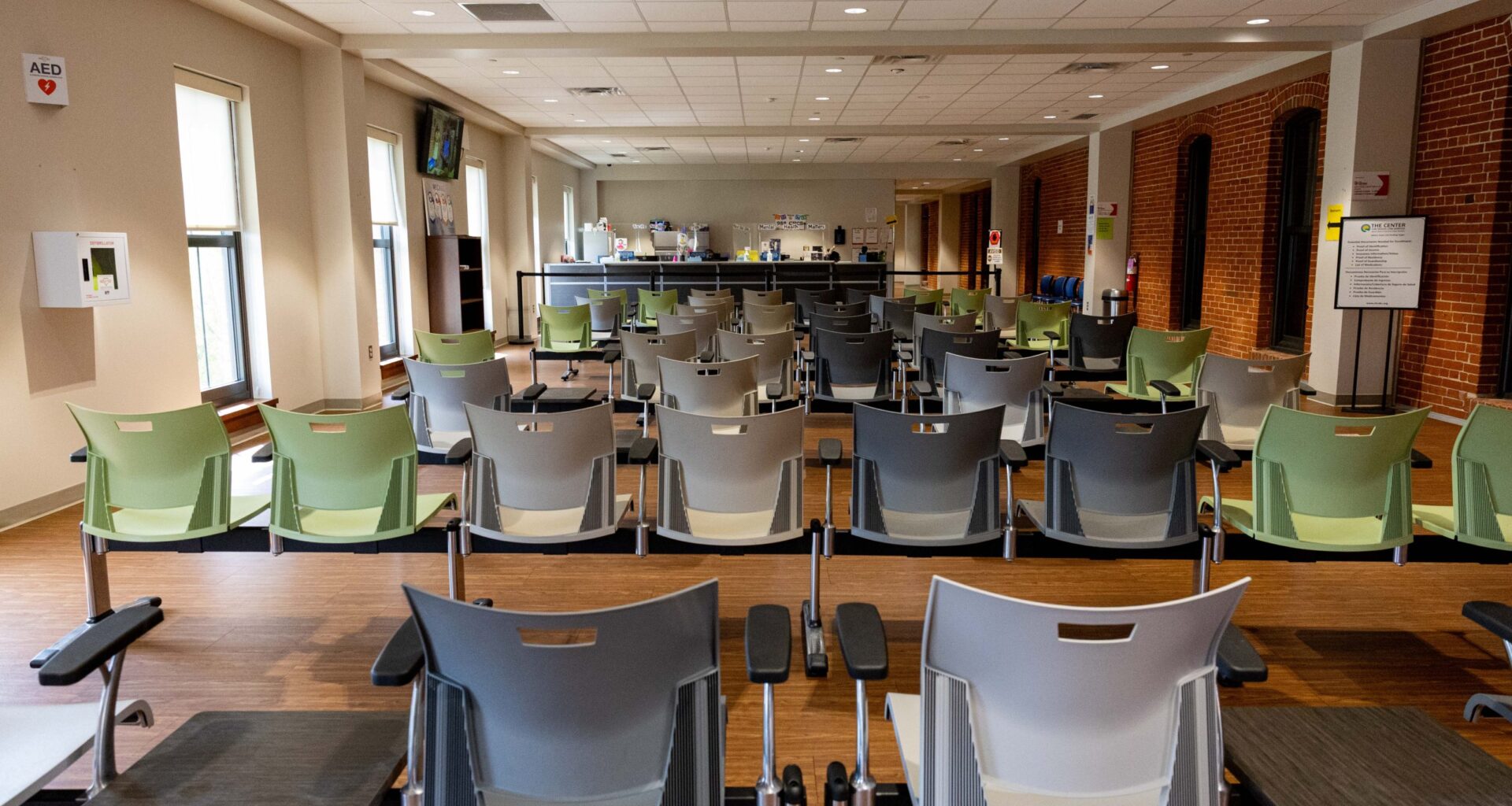Bexar County’s local mental health authority is facing staff cuts and eliminating its methadone treatment program in response to $4.5 million in COVID-19 economic recovery funds drying up.
This fiscal year, which started on Sept. 1, the Center for Healthcare Services figures it will provide 2,800 fewer people looking for mental health and addiction recovery services after losing $2.4 million in federal funding for mental health and another $2.1 million in substance use programs.
The agency serves around 38,000 people every year.
The local mental health authority’s CEO, Jelynne LeBlanc Jamison, said that funding for mental health beds has remained stagnant amid hospital closures in recent years.
All together, inadequate funding for beds and loss of Biden-era funds means the local mental health authority faces providing services for a growing uninsured population in South Texas with even fewer resources.
Jamison is pushing local and state leaders for support on two big, but expensive solutions: a new psychiatric hospital to increase the number of mental health beds, and a diversion center for inmates experiencing mental health crises or addiction who have committed low-level offenses.
 The Center for Healthcare Services adjusted its enrollment walk-in hours for perspective patients beginning on Sept. 1. Credit: Amber Esparza / San Antonio Report
The Center for Healthcare Services adjusted its enrollment walk-in hours for perspective patients beginning on Sept. 1. Credit: Amber Esparza / San Antonio Report
“We need to get serious about investing in a psychiatric hospital so we can have a place for people to go to get better, to seek treatment for both mental health and substance use,” Jamison said. “Those individuals who are experiencing a psychotic episode and they’re committing a misdemeanor like trespassing or disturbance or something like that, they could be released to this diversion center.”
In 2023, CHCS launched a jail-based competency restoration program aimed at restoring defendants to competency instead of waiting months or years for a hospital transfer. The program can help up to 18 participants at a time — a drop in the bucket compared to the nearly 150 inmates waiting for competency restoration.
The Center for Healthcare Services is one of 39 local mental health authorities in Texas, and only one of five that serve a single county.
The center provides mostly outpatient mental health and addiction recovery services for both adults and children. The center operates a $160 million budget, almost half of which comes from the state, with Medicaid, private insurance and local funding filling in the rest.
Roughly $14 million of its funding goes toward inpatient psychiatric hospital beds for the uninsured population. The number of mental health beds available in San Antonio has declined with the closure of hospitals like Texas Vista in 2023 and the Nix in 2019.
A University Health and Bexar County-funded report by the Meadows Mental Health Policy Institute in 2023 recommended Bexar County invest in its own psychiatric hospital. The county approved its annual budget earlier this month and it does not include funding for a new mental health hospital.
A total of 85 positions at the Center for Healthcare Services were at risk because of the recent funding cuts. The center was able to find other opportunities for 46 of those employees, Jamison said.
The largest hit for the center was for people receiving methadone treatment, a medication that treats opioid addiction. Two hundred slots for uninsured individuals who need the treatment are now gone. The center has started doing outreach to find other community organizations to fill the gap, Jamison said, but they haven’t yet found success.
 The Center for Healthcare Services helps patients begin and follow medication regimens to treat mental health and other diagnoses. Credit: Amber Esparza / San Antonio Report
The Center for Healthcare Services helps patients begin and follow medication regimens to treat mental health and other diagnoses. Credit: Amber Esparza / San Antonio Report
The Center for Healthcare Service’s funding for mental health beds, meanwhile, has stagnated. And the average length of stay is much shorter than what’s necessary to treat substance abuse, Jamison added, and often barely enough to stabilize someone in a mental health crisis.
“We were proposing a 300 bed facility for San Antonio. We went to the legislature two years ago to ask for funding, and we were basically told by the State Legislature that would be a local problem,” Jamison said.
“We don’t have inpatient facilities available for individuals to get the type of treatment they need to prepare them for a potential outpatient journey,” Jamison added. “So you end up making more visits than you should make at an emergency department at a hospital. And an emergency department is not the place for someone experiencing a psychotic episode.”
